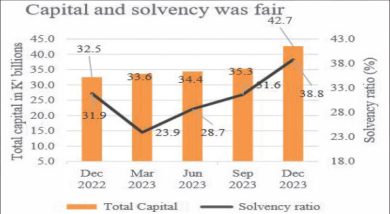UN agency decries exchange rate effect on debt

The United Nations Conference on Trade and Development (Unctad) has said Malawi’s significant debt to GDP ratio increase after the 2006 debt cancellation is a reflection of sharp exchange rate depreciation that occurred last year.
The UN agency in the 2013 Least Developed Countries (LDCs) report released recently, has noted that in general, the LDCs have fewer opportunities and less sources of financing than other developing countries.
“With few exceptions, their domestic debt markets are not sufficiently developed, especially in the long maturity segment, and funds that can be mobilised domestically for investment are constrained by the limited amount of savings. Developing a domestic debt market is costly in terms of financial and human resources and in most cases takes many years,” reads the report in part.
But Malawi devalued and floated the kwacha which has seen the local unit depreciating due to market forces.
But in an interview on Thursday, Ministry of Finance spokesperson Nations Msowoya noted that although the dollar value of the country’s debt has not increased significantly, Malawi suffers negative exchange rate effects on debt.
“We have long-term and short-term policies to avoid these effects. We are diversifying the exchange rate of our debt by borrowing in other currencies for instance the Japanese yen so that we do not suffer exchange rate effects,” said Msowoya.
The Economist Intelligence Unit, as quoted by Nico Asset Managers, early this year noted that public debt percentage of GDP is forecast to increase from 62 percent to 68 percent in 2013, which is above the three year historical average of 40 percent.
However, the Reserve Bank of Malawi economic review indicates that net domestic credit to government declined to K151.9 billion (about $379m) at the end of the second quarter of 2013 from K153.2 billion (about $383m) registered in the preceding quarter.
The RBM report indicated that government reduced its net borrowing from the monetary authorities by K6.5 billion, representing the net effect of K35 billion decrease in open market operations Treasury bills, K28.5 billion issuance of promissory notes, K16.1 billion uptake of Ways and Means advances, and K160 billion increase in government deposits following foreign receipts.









